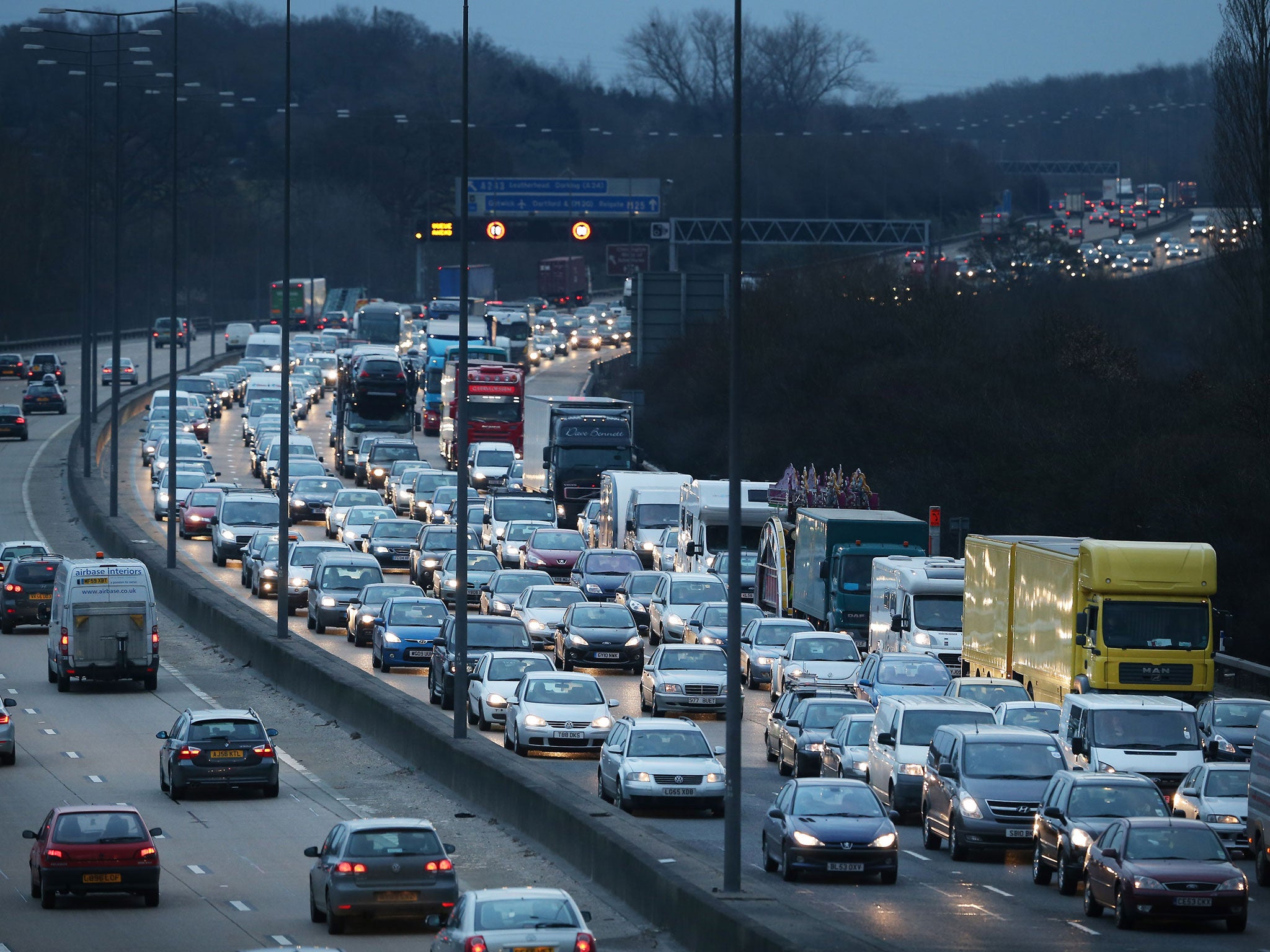Over 60% drivers admit to eating and driving which 'increases chances of crashing'
Two per cent of motorists admitted to barely avoiding a crash

Your support helps us to tell the story
From reproductive rights to climate change to Big Tech, The Independent is on the ground when the story is developing. Whether it's investigating the financials of Elon Musk's pro-Trump PAC or producing our latest documentary, 'The A Word', which shines a light on the American women fighting for reproductive rights, we know how important it is to parse out the facts from the messaging.
At such a critical moment in US history, we need reporters on the ground. Your donation allows us to keep sending journalists to speak to both sides of the story.
The Independent is trusted by Americans across the entire political spectrum. And unlike many other quality news outlets, we choose not to lock Americans out of our reporting and analysis with paywalls. We believe quality journalism should be available to everyone, paid for by those who can afford it.
Your support makes all the difference.A survey by road charity Brake and insurance company Direct line has found over three in five drivers on the road have admitted to eating while behind the wheel in the past year.
1000 drivers were asked about their food habits when in the car for the past 12 months, and 29 per cent revealed they'd opened and eaten food while on the road. A further 33 per cent of polled motorists disclosed they'd eaten food that had been unwrapped and given to them from fellow car passengers.
Two per cent acknowledged they'd had been distracted by food or drink, and had had to break or swerve in order to avoid a hazard on the road ahead, barely avoiding a crash.
According to a Brunel University study published in 2008, "eating a meal at the wheel increases your risk of a devastating crash as much as talking on a phone."
Eating while driving is not the only distracting activity drivers have admitted to part-taking behind the wheel. The survey also revealed five per cent of drivers have shaved, combed their hair or applied make-up while on the road. 15 per cent admitted to having carried out personal grooming when their vehicle was stationary.
The Press Association reported that the trend of eating behind the wheel was on the increase, but Ed Morrow, campaigns officer at Brake told The Independent: “We don’t know how prevalent eating at the wheel used to be, so we don’t know for sure that more drivers are doing it, or doing it more often.
What we do know is that people are living increasingly fast-paced lifestyles, which are likely to contribute to the alarmingly high proportion of drivers now admitting to eating at the wheel.”
Julie Townsend, deputy chief executive of Brake said: "Driving is the most complicated and risky thing most of us do on a regular basis, so it is vital we give it our full and undivided attention. We can't afford to treat our cars as an extension of our kitchen or bathroom."
She added "Eating at the wheel often means taking your eyes, hands and mind off the road and dramatically increases your chances of crashing and killing or seriously injuring someone."
The charity is appealing to the Government to increase current fines for distraction and careless driving offences, in the hope it would dissuade dangerous multi-tasking to take place behind the wheel.
Direct Line's motor director Rob Miles told PA "There has been significant research into the increase in drivers' reaction times while talking on a mobile phone, but other in-car distractions that take the driver's attention away from the road can be equally harmful."
AA president Edmund King also commented on the results of the survey. "We need to take these findings with a pinch of salt. Many drivers safely pop a 'car sweet' into their mouths while driving which causes no more distraction than changing gear or putting on the indicator.
"In-car driver distractions were a contributory factor in 3% of all accidents on UK roads in 2012. Drivers need common sense to prevail and avoid activities that have a detrimental effect on their ability to drive safely but I don't think we need a law that prescribes everything that a driver can or can't do."
Additional reporting by PA
Join our commenting forum
Join thought-provoking conversations, follow other Independent readers and see their replies
Comments